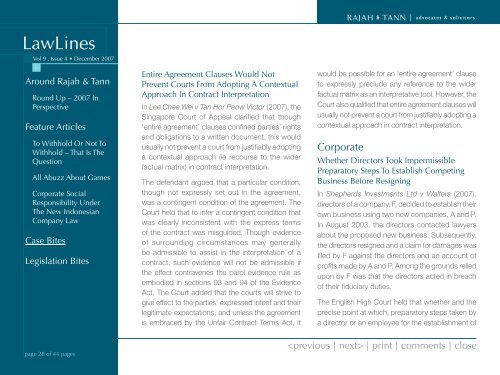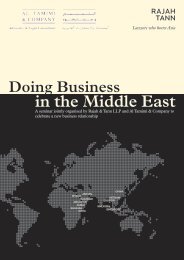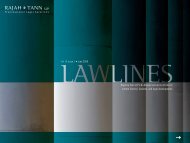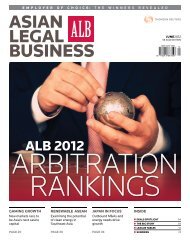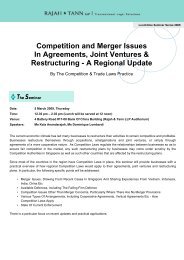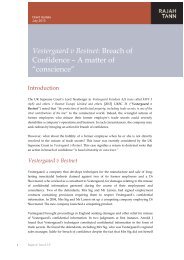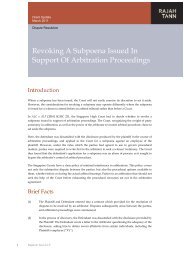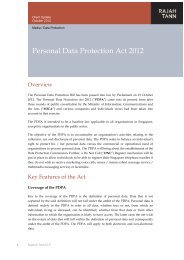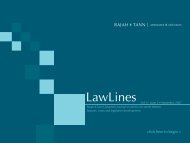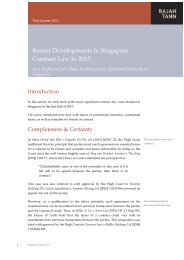Lawlines Volume 9 Issue 4 - eOASIS
Lawlines Volume 9 Issue 4 - eOASIS
Lawlines Volume 9 Issue 4 - eOASIS
Create successful ePaper yourself
Turn your PDF publications into a flip-book with our unique Google optimized e-Paper software.
LawLinesVol 9 . <strong>Issue</strong> 4 • December 2007Around Rajah & TannRound Up – 2007 InPerspectiveFeature ArticlesTo Withhold Or Not ToWithhold – That Is TheQuestionAll Abuzz About GamesCorporate SocialResponsibility UnderThe New IndonesianCompany LawCase BitesLegislation BitesEntire Agreement Clauses Would NotPrevent Courts From Adopting A ContextualApproach In Contract InterpretationIn Lee Chee Wei v Tan Hor Peow Victor (2007), theSingapore Court of Appeal clarifi ed that though‘entire agreement’ clauses confi ned parties’ rightsand obligations to a written document, this wouldusually not prevent a court from justifi ably adoptinga contextual approach (ie recourse to the widerfactual matrix) in contract interpretation.The defendant argued that a particular condition,though not expressly set out in the agreement,was a contingent condition of the agreement. TheCourt held that to infer a contingent condition thatwas clearly inconsistent with the express termsof the contract was misguided. Though evidenceof surrounding circumstances may generallybe admissible to assist in the interpretation of acontract, such evidence will not be admissible ifthe effect contravenes the parol evidence rule asembodied in sections 93 and 94 of the EvidenceAct. The Court added that the courts will strive togive effect to the parties’ expressed intent and theirlegitimate expectations, and unless the agreementis embraced by the Unfair Contract Terms Act, itwould be possible for an ‘entire agreement’ clauseto expressly preclude any reference to the widerfactual matrix as an interpretative tool. However, theCourt also qualifi ed that entire agreement clauses willusually not prevent a court from justifi ably adopting acontextual approach in contract interpretation.CorporateWhether Directors Took ImpermissiblePreparatory Steps To Establish CompetingBusiness Before ResigningIn Shepherds Investments Ltd v Walters (2007),directors of a company, F, decided to establish theirown business using two new companies, A and P.In August 2003, the directors contacted lawyersabout the proposed new business. Subsequently,the directors resigned and a claim for damages wasfi led by F against the directors and an account ofprofi ts made by A and P. Among the grounds reliedupon by F was that the directors acted in breachof their fi duciary duties.The English High Court held that whether and theprecise point at which, preparatory steps taken bya director or an employee for the establishment ofpage 28 of 44 pages | print | comments | close


